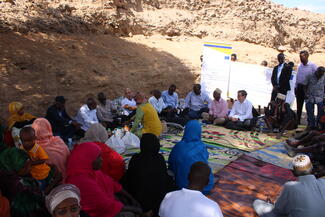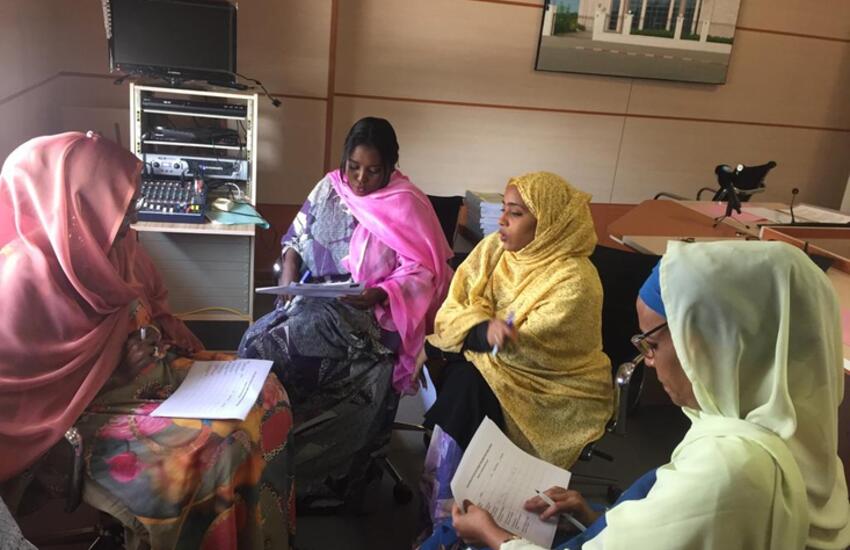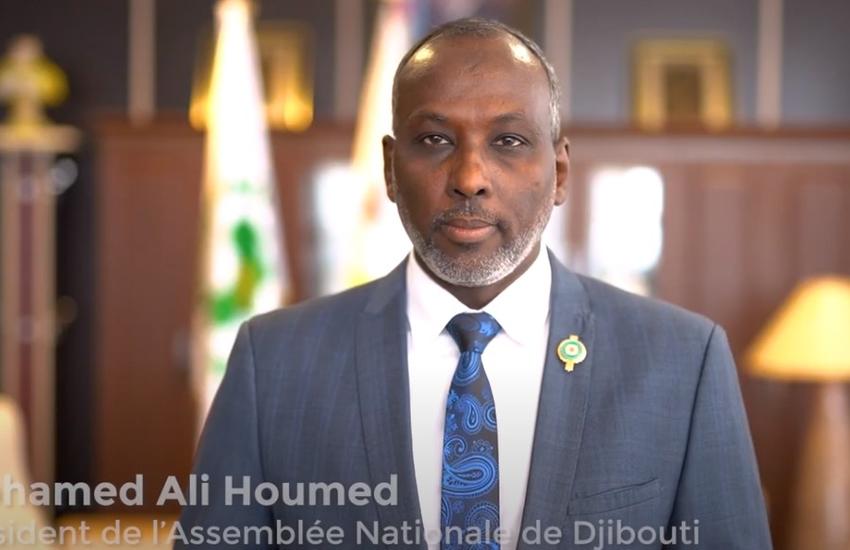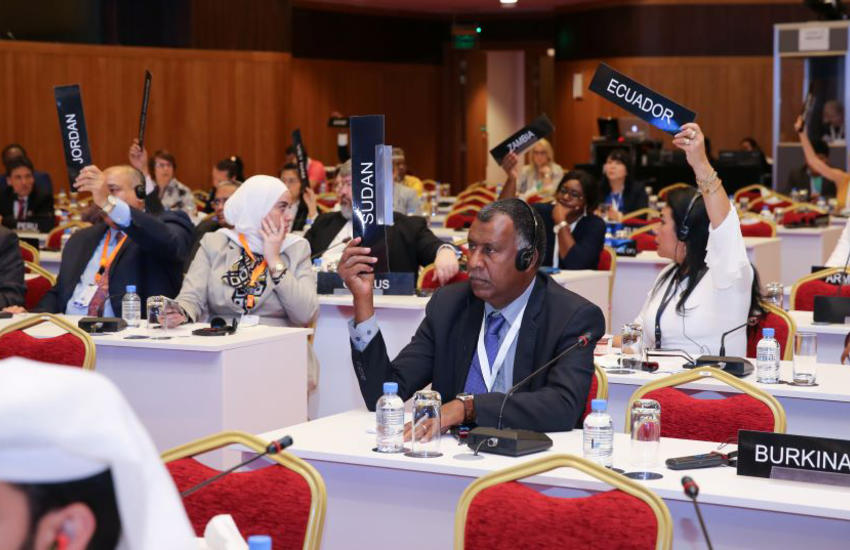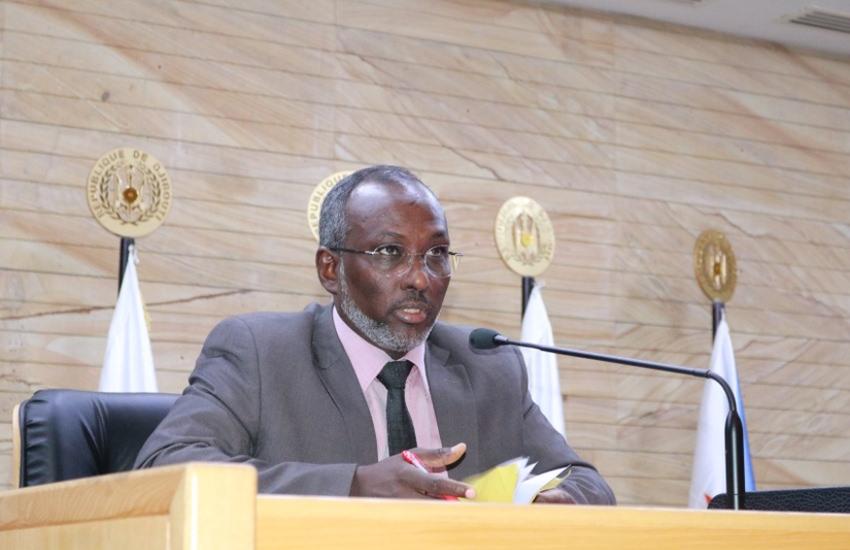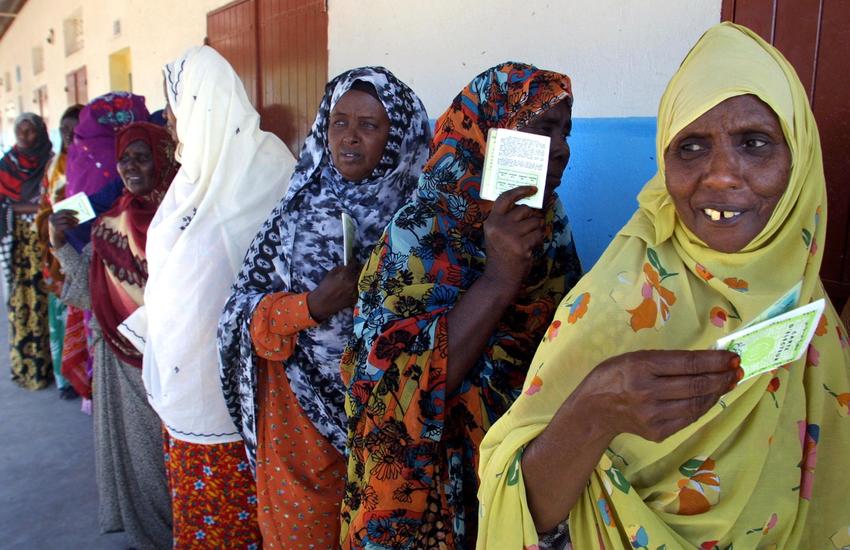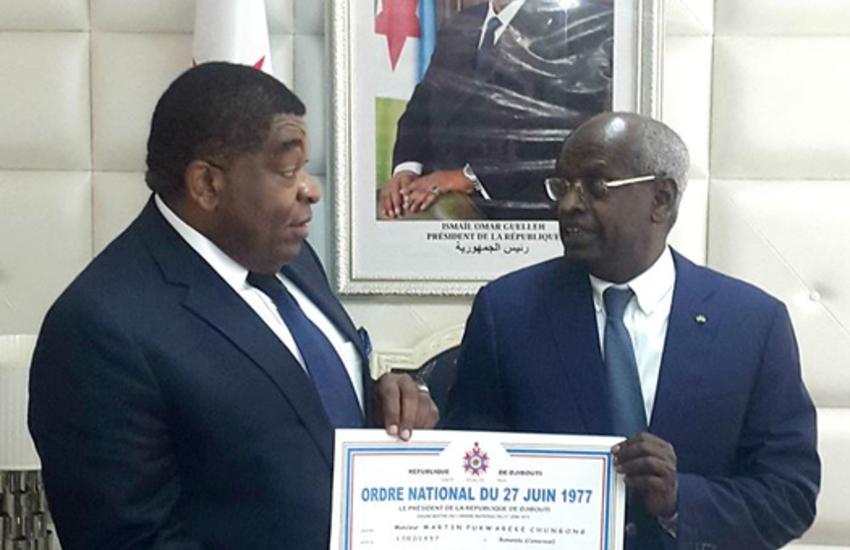Democracy requires that MPs are connected with their constituents, explaining their work to them and ensuring that constituents’ needs are represented. In Djibouti, one of the hottest and smallest countries in Africa, the IPU has been helping with that two-way exchange of information, connecting parliament with the people.
First, it has enabled Djibouti’s parliamentarians to become more accessible to their constituents. Djibouti’s terrain is remote and difficult, meaning that many MPs do not visit their constituencies as often as they would like. But with IPU support, some 15 MPs from the 65-seat National Assembly travelled to four of Djibouti’s six regions in 2022.
The MPs typically spent an afternoon with their constituents, gathering under trees or in sizeable, makeshift tents, sitting on the ground or standing in open circles. These caravans parlementaires – which translate roughly as “parliamentary roadshows” – were organized around the theme of women’s rights.
MPs explained to their communities the importance of women’s rights, as well as parliamentary efforts to empower Djibouti’s women. These have included the introduction of quotas to enforce a minimum 25% of female parliamentarians and new laws to prevent violence against women and girls.
In turn, the communities explained their daily lives and basic needs, including new roads to connect them with nearby markets. Djibouti’s social traditions meant the audiences were mostly male, but local women’s groups were well represented too. The meetings took place in pleasant, almost festive, atmospheres, and the communities even showed some MPs around their villages.
Back in the capital, Djibouti, the IPU helped MPs to connect with their audiences, especially youth, by supporting the production of short videos for digital use. In each of the videos, an MP explains the importance of human rights and his or her contributions. Focusing more on economic and social rights, the videos helped connect the MPs with their constituents and established channels of communication.
This need to connect also motivated the National Assembly’s work – with IPU support – to record, transcribe and communicate its meetings. The procès-verbaux – or minutes – enable Dijbouti’s people to see what their parliament is saying. Besides engaging Djibouti’s population, estimated at less than a million people, the work makes parliament more transparent.
Funded by the European Union and applauded by external evaluators, the IPU’s work in Djibouti shows how a well-motivated parliament can be enabled to perform some of its most basic functions more effectively: connecting with constituents and engaging.





